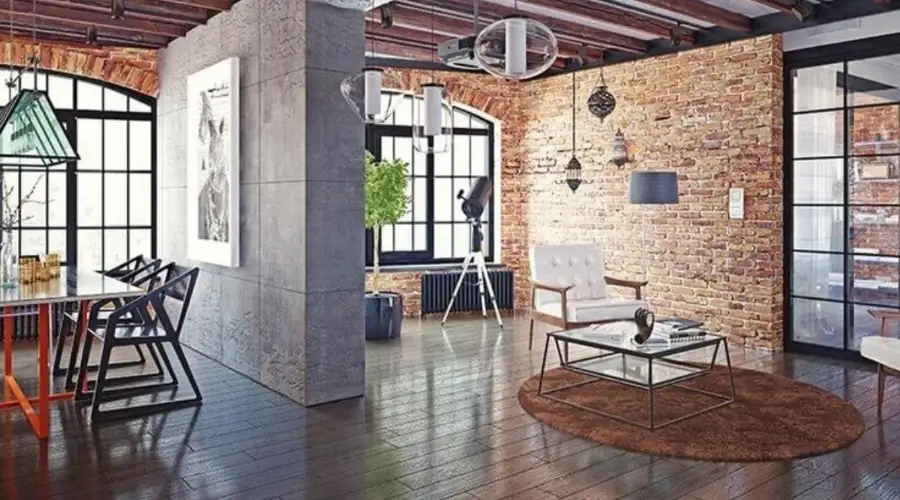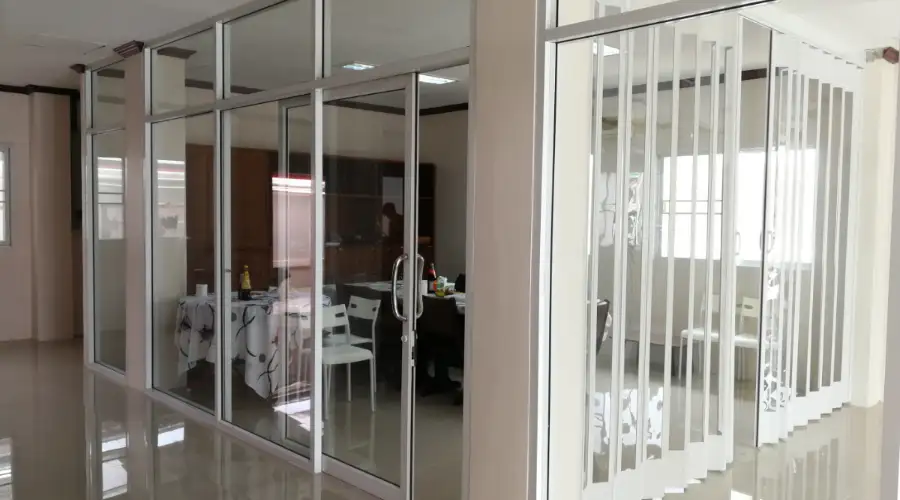Building construction involves several crucial factors. One among them is wall partition, which offers structural support, privacy, and aesthetic enhancements. The concept may seem simple, but it serves specific functions according to the design requirements. It has been available in different types to meet the demands of individual construction needs. In this blog, you’ll explore what a partition wall is, its purpose, types, and advantages. Stay tuned to understand the concept and choose the appropriate one.
What is a Partition Wall?
A partition wall is a crucial component in building design. It is a non-load-bearing wall primarily used to define areas, improve aesthetics, and provide privacy. Unlike structural walls, it does not support the building weight. You can choose the material type as per your building design and functionalities, like glass, metal studs, wood, or drywall.
Luckily, a partition wall can be configured to suit different needs, from separating rooms in a residence to dividing larger spaces into functional zones. In simple terms, it optimizes your interior spaces and keeps the structure in an organized manner.
Purpose of Partition Walls
The primary purpose of a partition wall is to divide the room spaces for a variety of reasons, including:
- Partition walls allow for the division of larger spaces into smaller ones to make them more functional.
- They enhance privacy, better utilize the area, and keep space organized.
- They provide sound insulation to protect people from excessive noise or inconvenience.
- They help create visually appealing designs and add a sense of refinement to a space.
- Some partition walls are particularly designed to resist the spreading of fire, flames, and smoke.
- Partition walls enhance the structural integrity of a construction.
Types of Partition Walls
Partition walls are classified into various types and are given as follows:
Brick Partition Walls: Brick partition walls are the most commonly used type in traditional Indian architecture. They offer enhanced durability and thermal insulation properties. They support heavy loads and provide unique aesthetic appeal to a space, making them ideal for structural purposes.

Glass Partition Walls: Glass partitions are completely transparent, adding a modern and sleek look to the interiors. They are particularly suited for maintaining an open feel, suitable for separating workspaces in offices and allowing natural light inside homes.
Aluminium Partition Walls: Aluminium partition walls can be a precise choice if you wish to add a stylish and sleek appearance to your space. They are extremely reliable, lightweight and can be personalized according to the design requirements of individual needs.

Drywall Partition Walls: This is the most widely used option that meets various design needs. The primary reason to consider this partition wall is easy to install, economical, versatile, and lightweight. This type can accommodate any paint colour or wallpaper.
Movable Partition Walls: The availability of various styles makes it an ideal choice to partition the walls. They include sliding, accordion, or folding panels. You can make the space flexible to use and allow for quick partitioning of rooms as per the changing requirements.
Gypsum Partition Walls: Gypsum partition walls are an exceptional choice for achieving a smooth and perfect finish. They offer better fire-resistant properties and are commonly used in commercial buildings. They are easy to install and provides excellent soundproofing properties.
Bamboo Partition Walls: As is well-known, bamboo walls offer a unique and natural aesthetic appearance to the indoors. They are eco-friendly and sustainable, suitable for use in homes and workspaces. They are durable and lightweight and can be shaped into intricate patterns to add a tropical vibe to your interiors.
PVC Partition Walls: PVC partitions will be an excellent choice if you are looking for an affordable and easy-to-maintain material. They can be used as a semi-permanent or temporary division wall, available in a diverse range of colour patterns.
Steel Partition Walls: Steel partition walls are mostly used in the commercial and industrial construction sectors, where strength and security are primary concerns. It is robust and durable and can withstand heavy loads. They offer exceptional fire resistance and are an ideal choice for high-traffic areas.
Advantages of Partition Walls
Partition walls offer several benefits and are listed as follows:
- Wall partitions maximize the usage of available space by dividing it into various functional areas.
- They create unique and separate spaces, providing privacy and aesthetic appeal to the spaces.
- They offer ultimate texture and style to residential and office spaces.
- These partition walls can be customized and easily removed according to the changing requirements.
- It allows enjoying natural light penetrating into the interior space and improves air circulation.
- Some types of partition walls are soundproof, which efficiently reduce noise transmission between spaces.
Applications of Partition Walls
A partition wall is a versatile solution for dividing the spaces within the building. It can be residential or commercial construction; choosing appropriate material can enhance the efficient usage of available space.
Residential: Partition walls are widely used to separate the larger spaces into smaller divisions like bedrooms, dining areas, home offices, or living rooms. It ensures functionality and privacy.
Commercial: Office spaces can be divided into various sections such as meeting rooms, private offices, or dining spaces, promoting focus and productivity. Based on the available space, the sections will be planned for a better experience.
Installation, Maintenance, and Durability
Installation:
A partition wall can be easily installed with these simple steps:
Planning & Preparation: Determine the size, layout, and type of partition that you are going to use. Based on the measurement, you can conclude the necessary materials.
Framing: Build the framework that fits the wall material. For additional stability, you can install bracing for taller walls.
Insulation: If you are planning to make the space soundproof, install appropriate insulation between the studs.
Add Finishing Touch: Finally, apply the wallpaper or paint to the wall to enhance the aesthetic appeal of the overall space.
Maintenance:
Regular maintenance enhances the lifetime of partition walls. Here are some simple tips provided:
- Clean the walls often to prevent dirt buildup.
- Conduct regular inspections to identify the cracks, loose joints, or holes earlier.
- Find any moisture issues that exist to prevent mildew and mold growth.
- Repaint the walls often to maintain their appearance.
Durability:
- Selecting the right quality materials will generally improve the reliability of partition walls.
- Use proper installation techniques to ensure the structural integrity.
- Regular inspection and maintenance prevent damage and prolong the lifespan of the wall.
Design Ideas and Trends
The elegance of partition walls can be improved with simple design ideas and are as follows:
- Opt for classy, sleek partition wall types like glass, metallic or geometric patterns to create a visually appealing appearance.
- Install raw materials like concrete or exposed brick for a touch of sophistication.
- Create natural textures with plants and greenery for earthy elegance and natural touch.
- Embrace bold colours like green, yellow, or blue for a positive and vibrant feel.
Closing Thoughts
Partition walls are a significant option to improve the functionality and aesthetic style of spaces. Each partition type has different characteristics and purposes that transform the entire look of both residence and office. Choosing the appropriate type that suits your design requirements and provides you with the best results.
FAQs
The cost of a partition wall in India can vary based on the materials used, labor cost, and design complexity. On average, it costs between Rs. 150 to 2,500 per square foot.
Yes, partition walls can be customized as per the requirements. You can remove or relocate them easily as per your changing needs. However, it is important to consult a professional to improve the safety and structural integrity of your building.
The selection of material type differs based on the needs and priorities. Here are some popular options such as drywall, glass, and wood.

